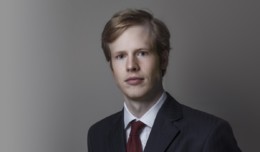The Challenges of Challenging the Coroner: R (Parkinson) v HM Senior Coroner for Kent, Dartford & Gravesham NHS Trust & Sameer Hijazi [2018] EWHC 1501 (Admin)
Stephen Brassington and Andrew Hurst successfully represented the Trust and Dr H respectively in a recent attempt by Mr Parkinson to challenge the coroner’s conclusions into the death of his mother by way of judicial review. The coroner was represented by Samantha Leek Q.C. The Divisional Court rejected Mr Parkinson’s claim, and in doing so provided a considered analysis of the principles surrounding Article 2 inquests, as well as highlighting how difficult it will be to challenge a coroner’s factual findings.
Mrs Parkinson experienced breathing difficulties and was admitted to A&E where her condition deteriorated and she died a short time later. At the subsequent inquest Mr Parkinson alleged that the Trust, (then represented by Sarah Ormond-Walsh), and in particular Dr H, had failed to provide adequate care to a culpable degree. The coroner heard evidence over three weeks from the family, nursing, medical and management personnel, and a number of expert witnesses in Pathology, Emergency Medicine, and Haematology. In his conclusions the coroner absolved the Trust and Dr H from criticism in respect of their collective or individual clinical management. In delivering a conclusion of death by natural causes the coroner accepted Dr H‘s account of Mrs Parkinson‘s admission, assessment and management, and rejected the serious allegations made against him by Mr Parkinson as to his conduct and care of his patient.
Before the Divisional Court, Michael Rawlinson QC, acting on behalf of Mr Parkinson, submitted that the case required an enhanced inquest in order to be compliant with Article 2, and inter alia, the findings as to the cause of death and the quality of the care provided were irrational. He further criticized the coroner for failing to make a PFD report. Samantha Leek QC, in detailed and persuasive submissions, addressed the legal principles behind Article 2 and argued that the claim was flawed on a number of grounds. Stephen and Andrew followed up in assisting the court with the highly detailed and complex evidential matrix which underpinned the coroner’s findings.
Having analysed the Article 2 case law at length, the court provided a helpful summary of the legal position as it relates to medical cases at paragraphs 82-90 of the judgment:
(i) Article 2 imposes substantive positive obligations in the state and procedural obligations.
(ii) The primary substantive positive obligation is to have in place a regulatory framework compelling hospitals – private or NHS – to have in place appropriate measures for protecting patients’ lives.
(iii) The primary procedural obligation is to have a legal system – civil or criminal – in place by which individual failures can be the subject of appropriate remedy.
(iv) The enhanced duty of investigation – where it falls to the state itself to initiate an effective and independent investigation – will only arise in medical cases where there is an arguable breach of the state’s own substantive obligations. A case where there is a systemic failing may trigger an enhanced and proactive investigation by the state whereas an “ordinary” case of medical negligence will not.
(v) Cases of individual negligence should not be “dressed up” as systemic failings. The coroner will be best placed to decide whether a case engages this enhanced obligation under Article 2.
On the facts of this case, the court declined to find Article 2 applied. Adequate systems were in place.
As to the factual findings, the court noted that Mr Rawlinson QC had to establish they were “perverse” in order to succeed – an “extremely difficult” threshold. He failed to do so. The coroner was entitled to come to the view he did on the evidence. The court also made no criticism of the absence of a PFD report.
In dismissing the case, it is significant to note that ordinarily interested parties will not receive their costs. In this instance, however, the court awarded both parties their costs in full, subject to a detailed assessment. In the court’s view, both interested parties had separate interests which warranted separate representation, and both had provided substantial assistance in resolving the factual issues in this case.
Stephen Brassington was instructed by Rosie Jewers of Clyde & Co solicitors and Andrew Hurst was instructed by Simon Gomersall of Radcliffes Le Brasseur.
Christopher Geering
Categories: Newsflash


